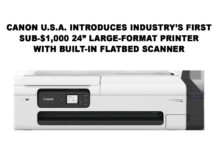 This column continues last month’s discussion of the benefits of flexibility in HR practices. We begin with flexibility that is specific to a given job or job type.
This column continues last month’s discussion of the benefits of flexibility in HR practices. We begin with flexibility that is specific to a given job or job type.
Job-specific flexibility
Let’s consider sales. Company owners and managers will ideally hire someone who can walk in the door with a bag of business. While circumstances certainly do arise that enable such a scenario, it is the exception rather than the rule. So, as a flexible compromise, employers may need to grow their own sales staff. This option becomes even more attractive when you realize that any new salesperson joining the company, even a seasoned one, always requires a ramp-up time.
It may also encourage you to know that some candidates with production backgrounds would like to move into a sales job. Such a career evolution could occur naturally from customer service to sales. And while customer service roles can be careers in their own right, ambitious
CSRs may welcome the prospect of further professional advancement into selling.
The sales role is also assuming new dimensions. As companies become business solutions providers instead of commodity printers, the task of business development becomes more complex. Accordingly, we are now seeing a division between “hunter-” and “farmer-”type sales roles, with many employers regarding business development as a stand-alone salary-plus-bonus position. Once accounts are developed, an account manager takes them on to maintain them. Not only does this two-part structure build business volume, but it can also offer employers more flexibility in recruiting or developing salespeople with a variety of aptitudes and functions.
As a second case study in flexibility, let’s consider Department Supervisors or Managers. Historically, printing has been an industry that concentrates on managing work—not people. But, as the industry evolves, companies are increasingly recognizing the need to emphasize human-resource management and process control in order to maximize efficiency and profitability. They also want to hire managers with experience in a print environment.
The reality on the shop floor is that, when managers have evolved from operators to hands-on forepersons to supervisors to managers, their companies have usually promoted but not trained them. Here again a flexible approach pays off: if you can’t find the supervisors or managers you want to hire, you can provide the training necessary to create them. Similarly, at the front end, customer services reps can become customer service managers, production coordinators can become production managers, then operations managers, and so on. In all these cases, the same parameters for training internally-promoted staff apply.
Employee flexibility
1. Think employer—not job. Identify vibrant companies that educate and train their employees and offer advancement from within. Once you have your foot in the door, you can position yourself to get the training and promotions you desire.
2. Stay put. If you’re looking for a change of job but can’t find one, consider staying in your current position for a while longer (if that’s an option). Staying where you are enables you to regroup and re-evaluate your career objectives and approach. It can also buy you time for training, networking, or gaining additional job experience to propel you towards your long-term goals. (Of course, you need to appropriately balance your obligations to your current employer with your career-development activities.) And closer investigation may even reveal advancement opportunities with your present company.
3. Consider relocating. To achieve your career goals, it may help to be flexible about location, though relocation is a major decision that will affect your family profoundly. And if you relocate for a specific company or position, you should have a contingency plan in case the job doesn’t satisfy your expectations.
Employees who prove their flexibility are valuable assets, and should be respected by employers. In an evolving industry, people who are entrepreneurial by nature and adaptable by practice will contribute significantly to the changing objectives of both the company and its clients. Employees who are elastic often make the best prospects for long-term employees.
Victoria Gaitskell is a placement specialist with PrintLink, a professional placement firm for the graphic communications industry. T: 1.877.413.2600 E: vgaitskell@printlink.com





